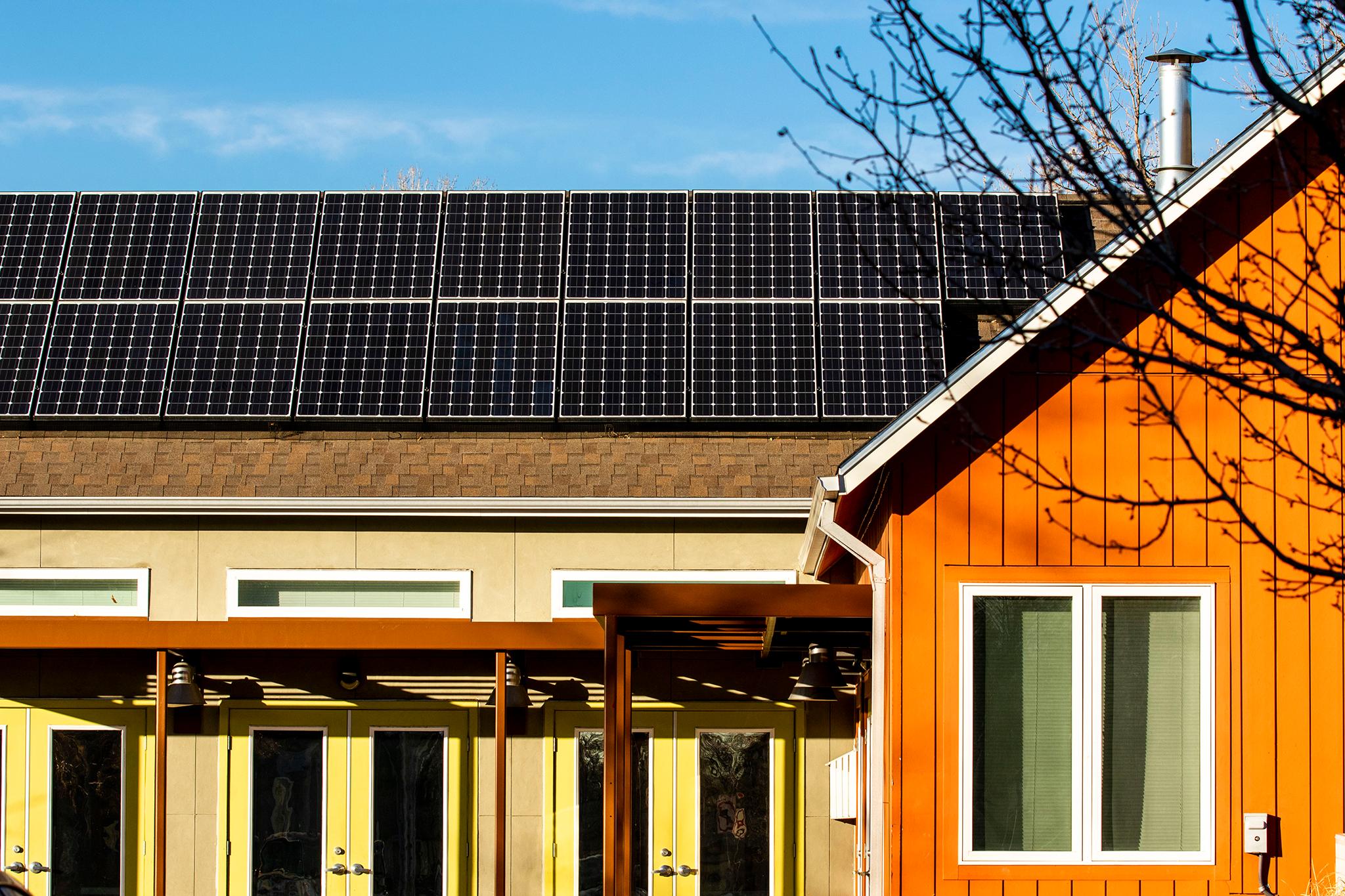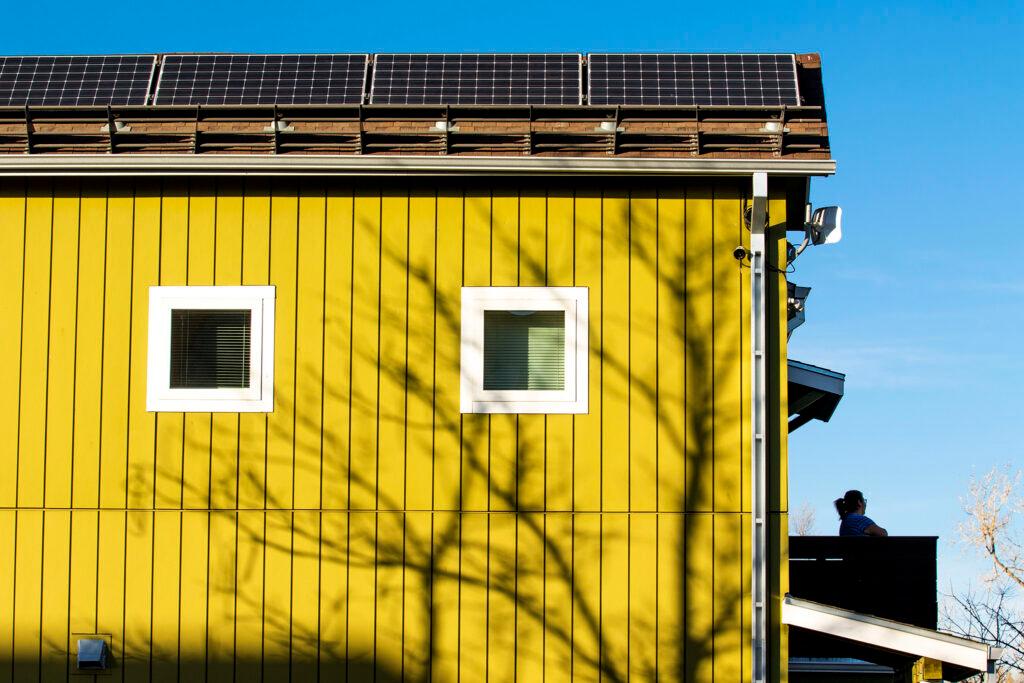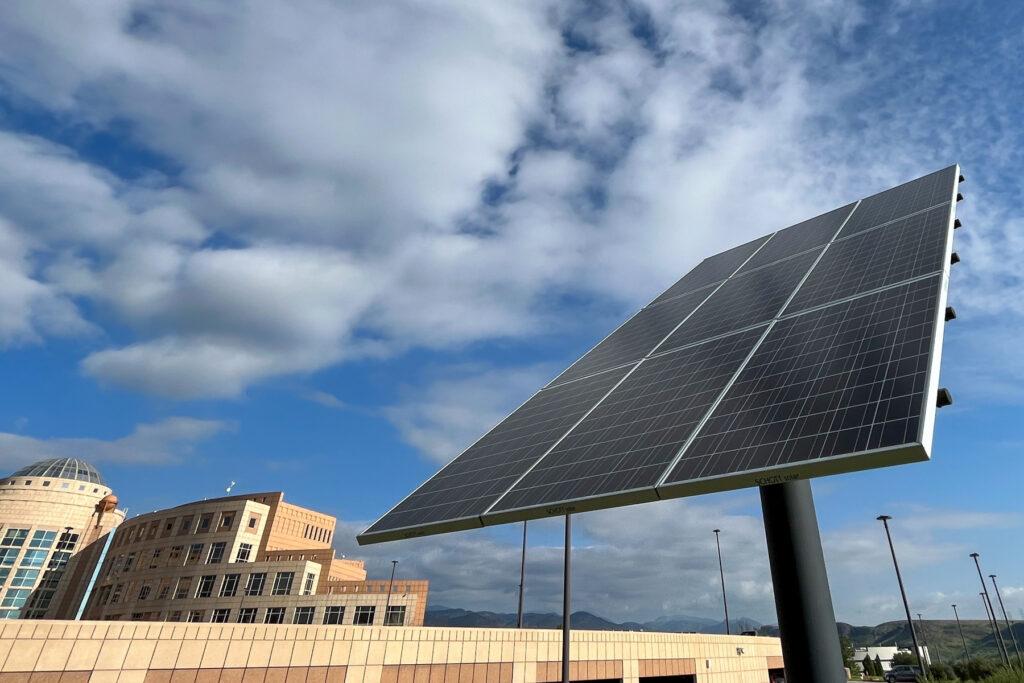
A move from New York City to Denver first got Mei Chin thinking about solar.
The former chef figured her new sun-baked climate could be perfect for rooftop panels. After leaving her job to care for her kids, Chin decided to research the idea online and talk to neighbors who had already invested in photovoltaic systems.
It didn’t take long for Instagram to register her interest.
Chin’s social media feed was soon packed with videos offering eye-popping solar bargains. In many of those ads, enthusiastic men in baseball caps promised “free” solar with the help of new government programs. Other ads suggested residents could snag a Tesla Powerwall — a home battery system that retails for more than $8,000 — at no cost or even make money selling solar energy back to the grid.
Chin thought the ads seemed sketchy, so she requested a quote from Solar United Neighbors, a local cooperative she found outside social media. Their price for a rooftop solar setup was around $14,000 — far from the zero-cost deals promised on Instagram.
That led her to submit a question to Colorado Wonders: “What are the ads promising ‘free’ solar panels and installation actually about? Is it too good to be true? Is there a catch?”
Beware of solar scams
The short answer is simple: If it sounds too good to be true, it is.
That’s according to Mike Kruger, the executive director of the Colorado Solar and Storage Association, a trade group representing solar installers across the state. He says the phony social media promotions are almost always created by some of his least favorite entities: lead generation companies.
“I hate these guys,” he said. “I really wish they would go away.”
Kruger said anyone considering home solar should understand that it’s not cheap, usually costing somewhere between $15,000 and $20,000 in Colorado.
It might seem counterproductive to deceive customers about those costs, but Kruger said it makes sense when your goal isn’t to sell solar but to harvest data. That’s why the ads almost always direct users to short surveys asking for contact information like emails, addresses and phone numbers. The resulting lists are then sold to actual contractors looking for potential customers.
It’s a practice Kruger knows puts his industry in a bad light. Every week, he said a customer or policymaker complains about the deceptive practice, but he hasn’t found a way to shut it down.
That’s not for a lack of trying, either. Kruger said social media companies have ignored his requests to crack down on the advertisements. He’s also pushed the Colorado Attorney General’s Office to look into the problem without avail.
Lawrence Pacheco, a spokesperson for the Colorado attorney general’s office, said he couldn’t confirm or comment on any investigations but noted false or misleading ads “are unlawful under the Colorado Consumer Protection Act and the department of law has authority to investigate such cases.” He encouraged anyone targeted by deceptive social media ads to file a complaint with the state.
Without other good options, Kruger has now resorted to a one-man education campaign. Through his association, he’s asked solar installers not to buy lists from lead generation companies, thereby cutting off any demand for the ads.
He also encourages everyone to scroll past the promotions. If someone is interested in solar, he recommends more analog shopping techniques, like talking to neighbors and asking for at least three quotes from local installers.
“Talk to some people who are actually going to put some men and women on your roof,” he said.

The true cost of solar power
Many of the misleading advertisements exaggerate an actual trend: Governments and utility companies are offering higher levels of financial support for residential solar systems.
But the truth is those incentives come with strict limits and won’t nearly erase the upfront cost of a project.
Take the federal solar tax credit. Due to the Inflation Reduction Act — the signature climate and health care law signed by President Biden in 2022 — households can now claim a federal tax credit worth 30 percent of the cost of a solar system. The major caveat is the credit is nonrefundable, meaning the final amount can’t exceed the amount someone owes in taxes.
Another benefit for solar customers is net metering. Colorado law requires utilities to offer those programs, which provide ratepayers credits to pay for future bills in exchange for electricity fed back to the grid. Some ads appear to suggest the programs will erase energy costs and provide immediate payments from a power company.
In reality, Kruger says it usually takes eight to 10 years to offset an upfront cash investment in solar. It can take even longer if a customer finances the initial purchase. A third option is a solar lease, in which a third party owns and repairs a rooftop system in exchange for a regular payment and a piece of the overall energy savings.

A more aggressive approach
The U.S. Department of Energy has warned the public about misleading solar ads, and the Federal Trade Commission has cracked down on telemarketing schemes that follow a similar playbook for harvesting names to sell to legitimate solar installation contractors.
And while Colorado regulators don’t appear to be focusing on shutting down the misleading ads, officials in other states are.
A new law that took effect in Nevada on Jan. 1 requires anyone marketing solar panels to hold a state contractor’s license or work as the direct employee of a company with a license. In effect, it means solar companies are now responsible for all their own marketing, and lead generation companies would violate state laws by running ads for solar panels.
While Kruger understands the reasons behind the law, he worries the approach could drive up costs for solar installers currently reliant on independent contractors. His preferred approach would instead correct the message, not the messenger.
“I would love to figure out a way where these lead generation companies have to tell the truth,” he said.









